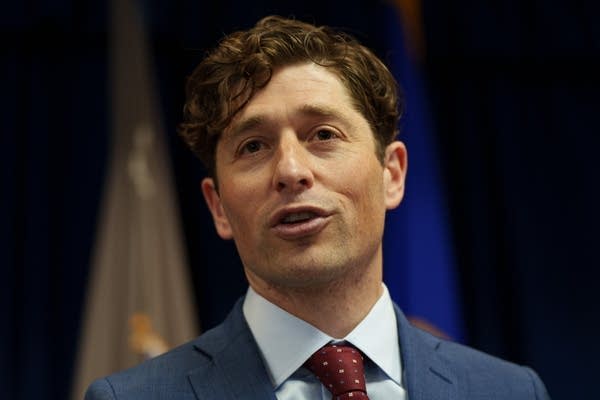Minneapolis launches system to intervene if MPD officers appear to be struggling

Go Deeper.
Create an account or log in to save stories.
Like this?
Thanks for liking this story! We have added it to a list of your favorite stories.
The city of Minneapolis is launching a new system that will allow them to identify and intervene with police officers who are struggling in their jobs.
Mayor Jacob Frey said the goal of the new early intervention system would be to use data on things like officer attendance, off-duty work hours or arrest records to identify officers who show signs of stress, trauma or burnout.
“People go through difficult times at home and in their job, what this early intervention system was built to do is track all of it,” Frey said. “It’s built to make sure that we’re sussing out problematic situations before they arise — it’s based on helping officers get what they need to be their best versions of self.”
Supervisors will be able to offer at-risk officers additional training, mental health counseling or other resources to help them cope.
Turn Up Your Support
MPR News helps you turn down the noise and build shared understanding. Turn up your support for this public resource and keep trusted journalism accessible to all.
Frey said the system has been in the works for about four years. City staff say the contract with Chicago-based Benchmark Analytics will cost about $2.375 million through 2029 and is split between the city’s information technology and police department budgets. The Pohlad Foundation contributed $500,000 to support the initiative.
Minneapolis Office of Community Safety Commissioner Todd Barnette said the new system isn’t about disciplining officers. He noted that the analytics the city collects will allow them to identify both high-performing officers as well as troubled officers.
“This system is designed to work as a risk management system, in which we identify our officers who might be struggling in their personal or professional lives and need intervention, or some support or some training before something adverse happens,” Barnette said.
Supervisors and officers are expected to be trained on the new program in early 2025, according to city staff.
“It is also not a panacea,” said Chief Brian O’Hara. “As I’ve said before, we will only be as good as an agency as our worst supervisor. So it takes a supervisor being able to take information from this system and go through it and identify with a clear way towards accountability.”
The Minneapolis City Council is expected to consider the contract at their regular meeting Thursday.
If the contract is approved, city staff and Benchmark will begin to identify between 15-20 data points they’d like to collect in the first few months of the contract, said Nick Barkley, who will help launch the effort at the city. Halfway through the first year, they’ll likely have enough data flowing into the system to launch a pilot project in the police department.
Minneapolis is currently subject to a court-enforced agreement with the Minnesota Department of Human Rights on policing, with a separate federal consent decree also expected soon. The creation of the early intervention system was a requirement of the Department of Human Rights agreement.
“Benchmark has demonstrated in several cities across the country that compliance with settlement agreements and consent decrees is possible,” Barkley said. “Benchmark is partially owned by the University of Chicago, where researchers play a key role in the development of predictive models and algorithms that identify patterns of officer conduct that can lead to at-risk behavior in policing.”
Benchmark Analytics has previously worked with cities under federal consent decrees on policing like Albuquerque, N.M., Nashville, Tenn., and Baltimore, Md., according to city staff.


